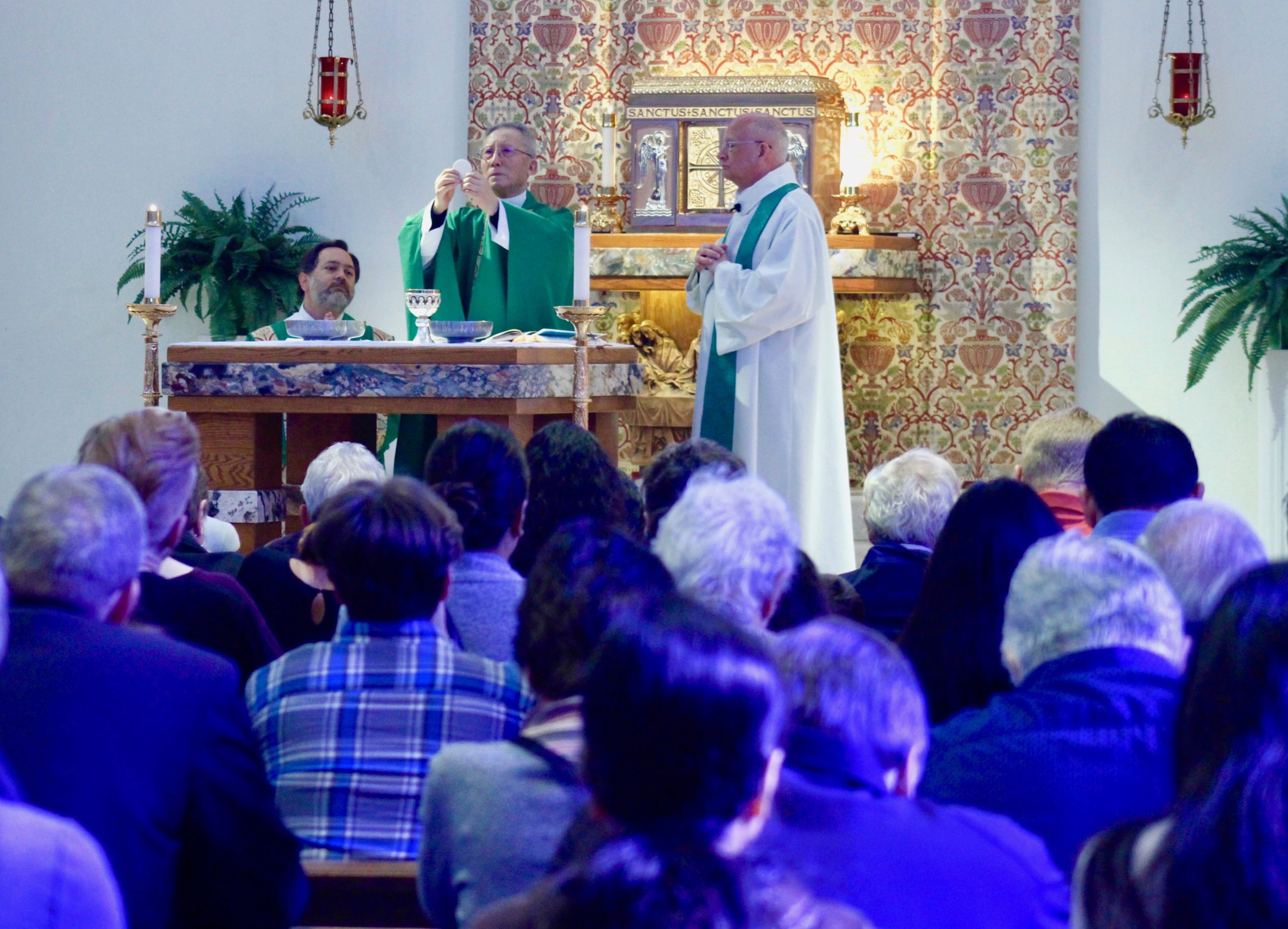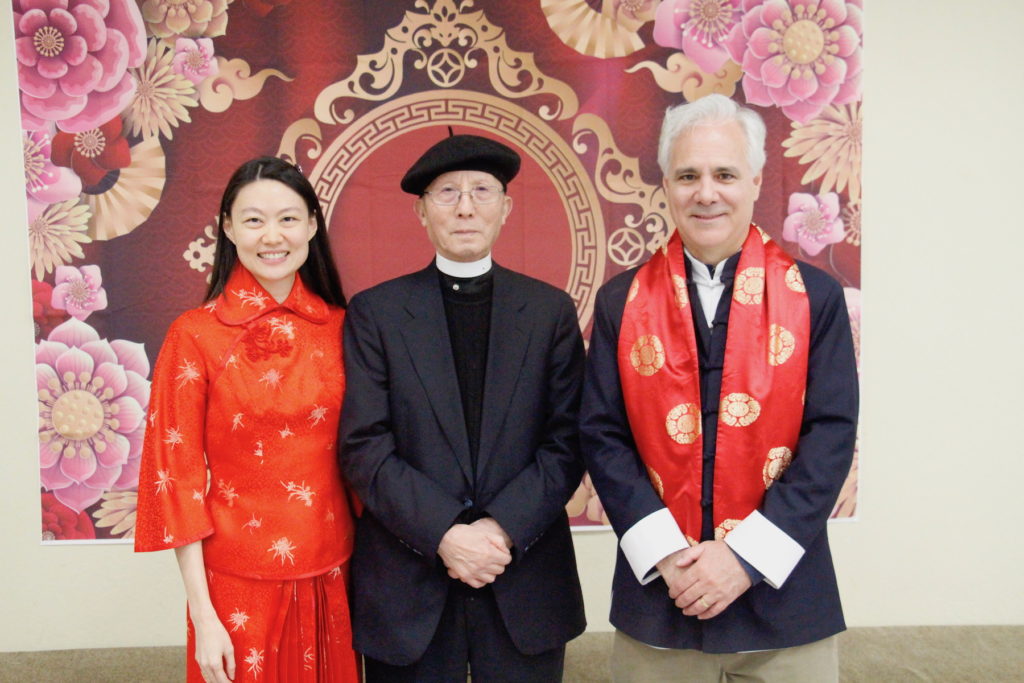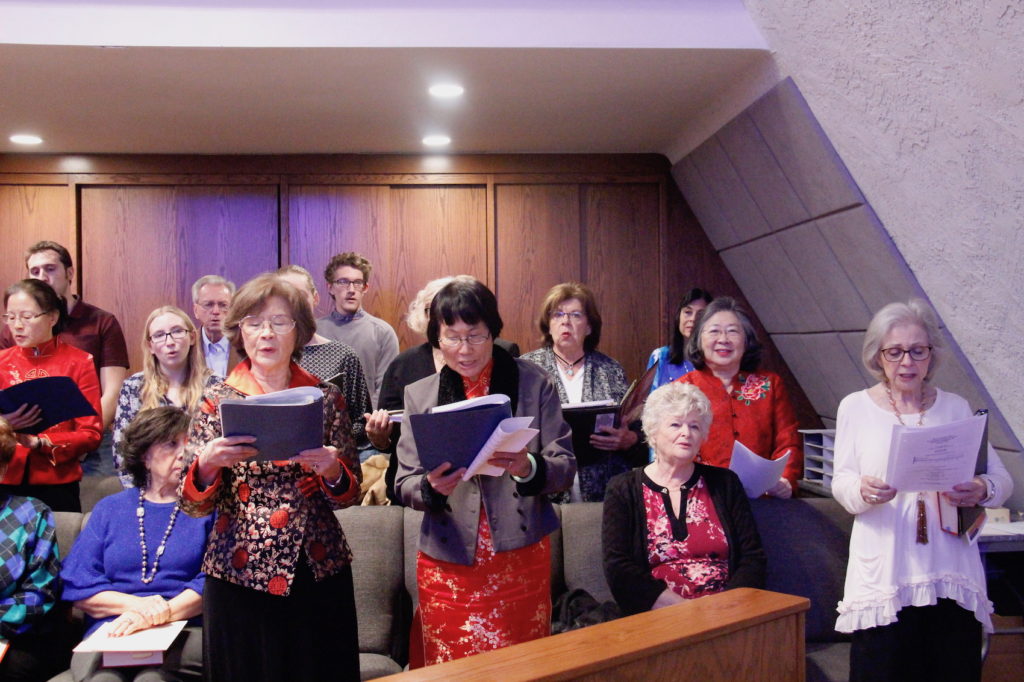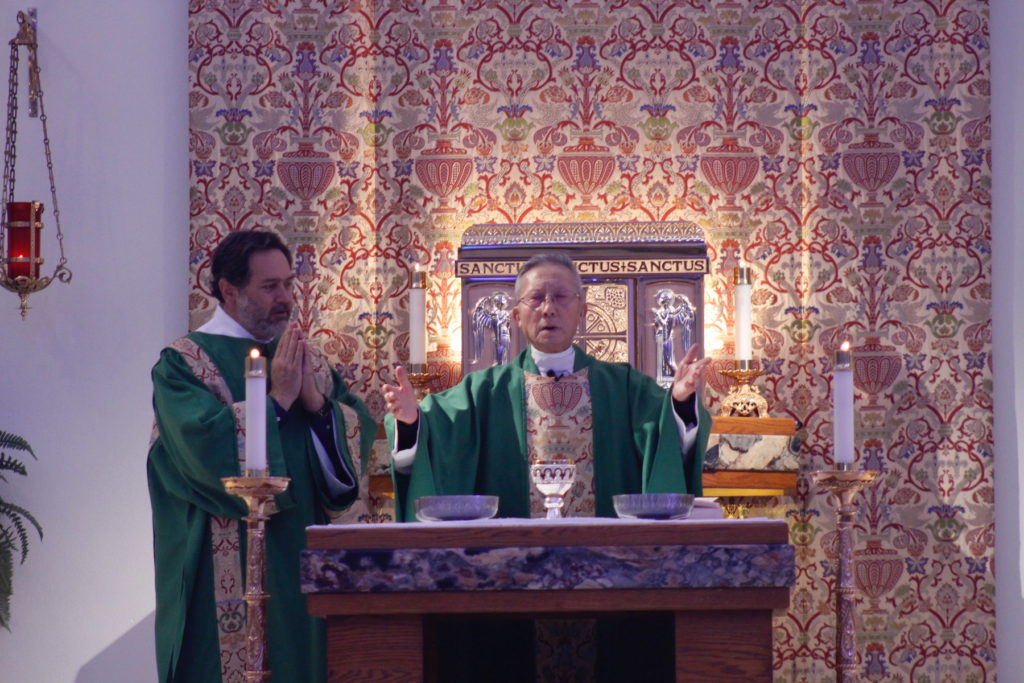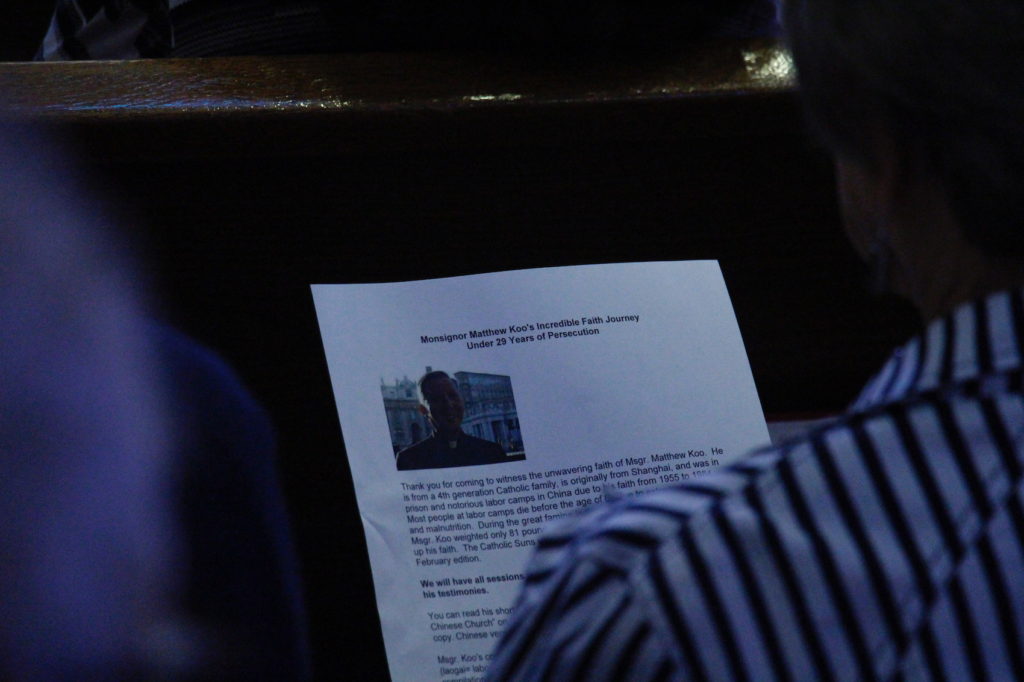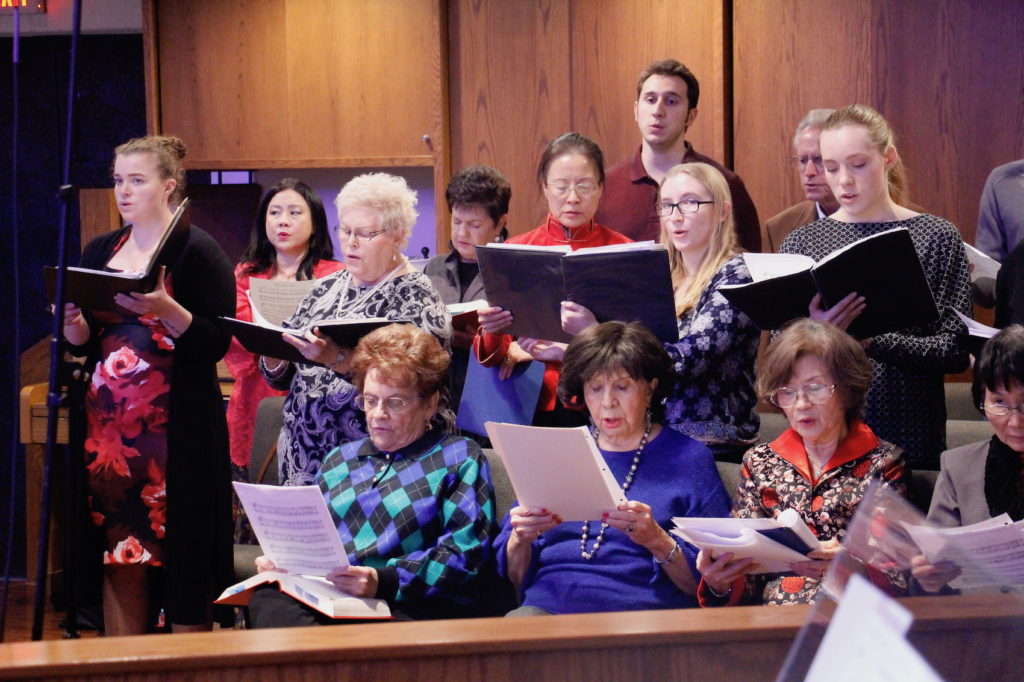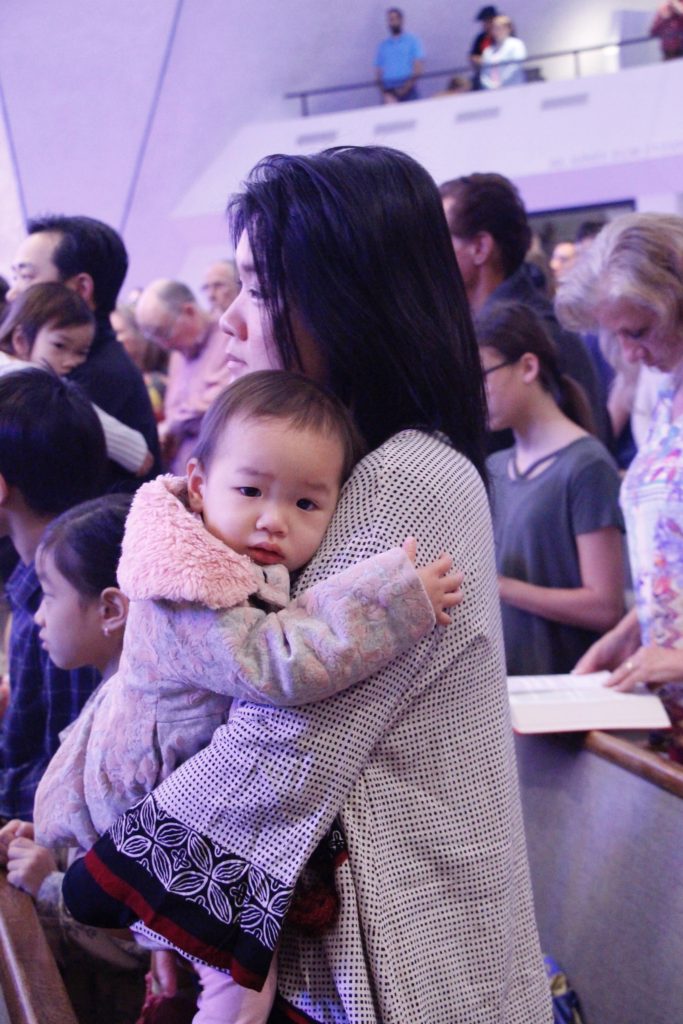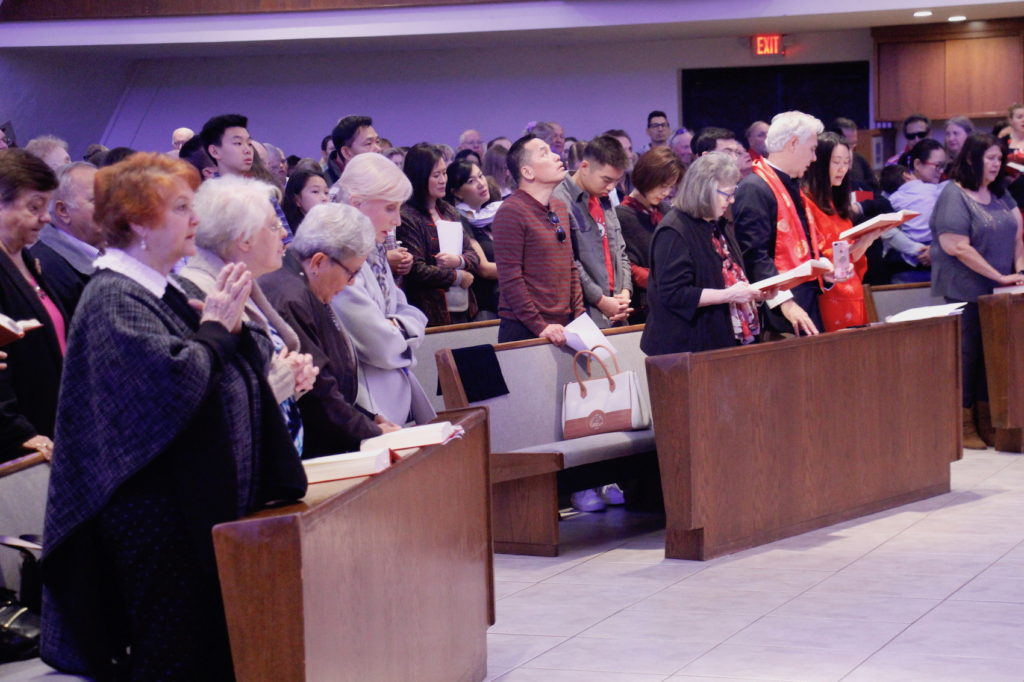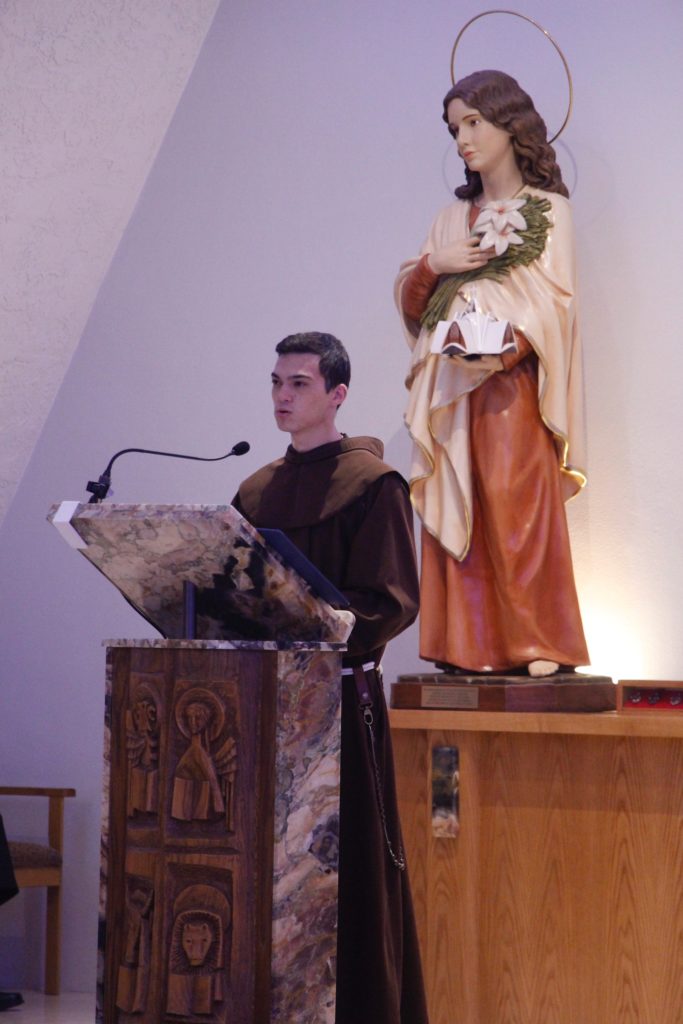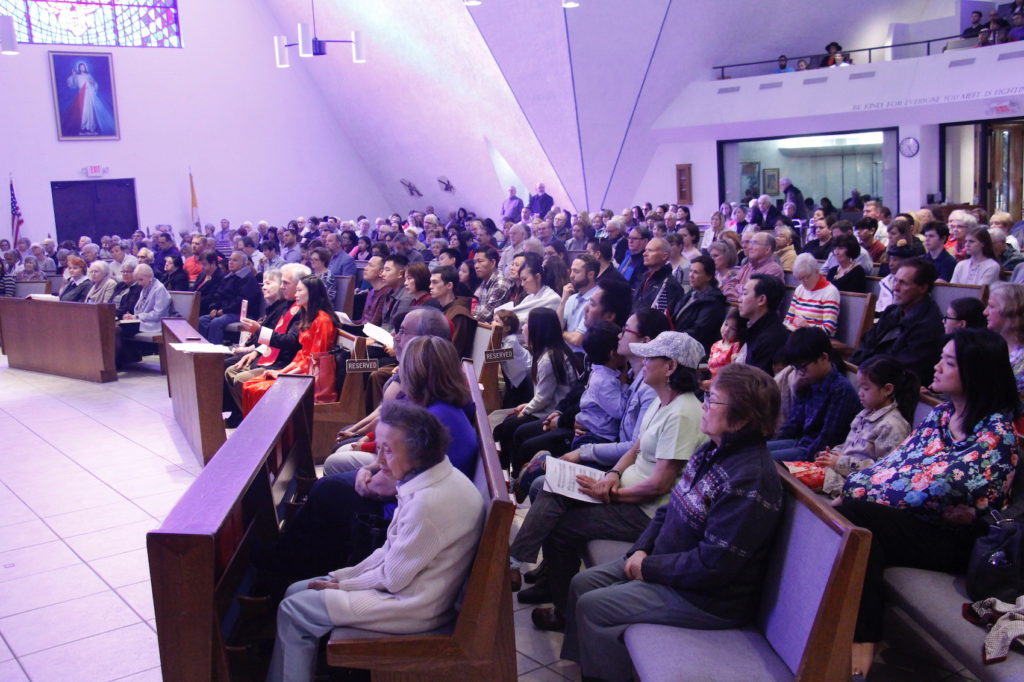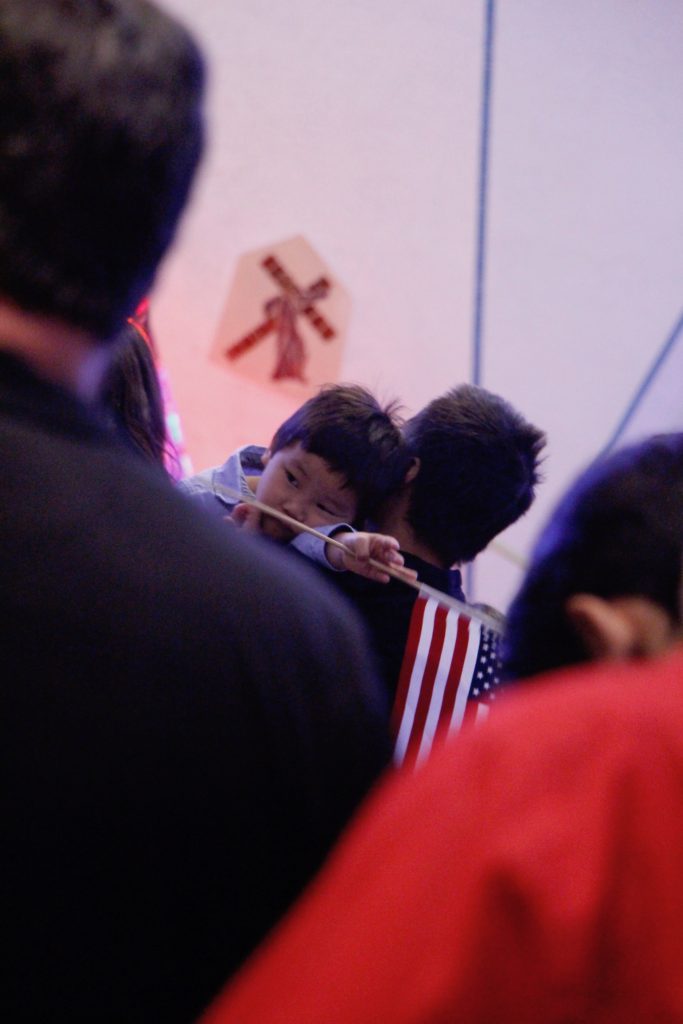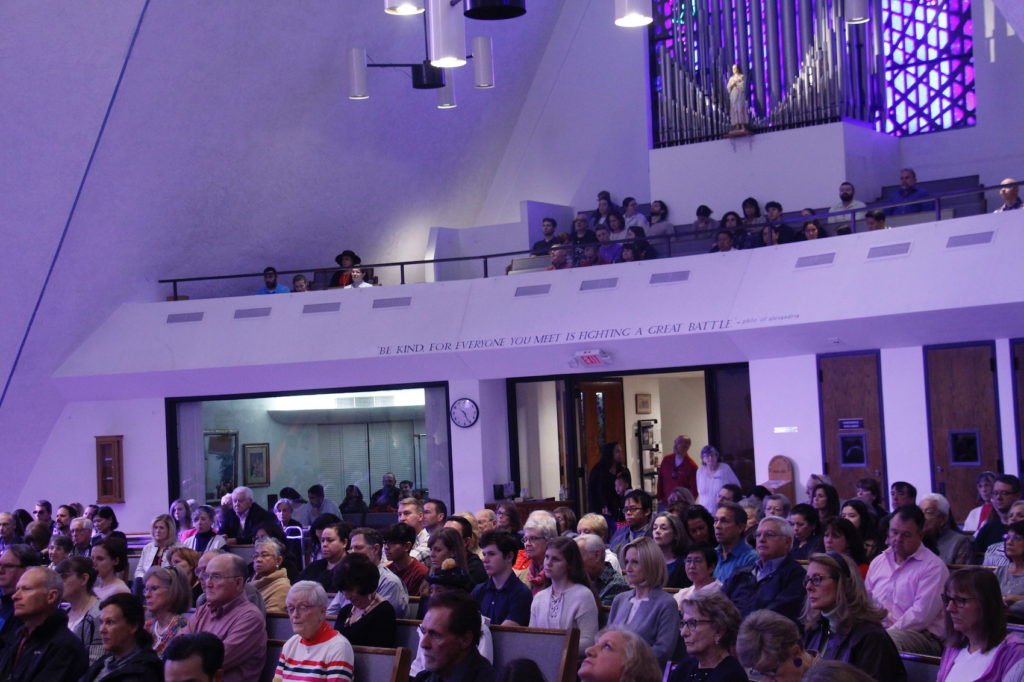SCOTTSDALE — Massgoers at one Sunday liturgy received two Catholic reminders of what it means to be Catholic. First, the Catholic Church is a global, multilingual one, something that’s especially seen in the Diocese of Phoenix where Mass is regularly offered in at least 13 non-English languages — not including Latin. Second, it’s a faith whose freedom to practice it is not guaranteed, even in the modern age.
Msgr. Matthew Koo, who spent 29 years in multiple Chinese prisons and notorious labor camps for refusing to resign membership in the Legion of Mary, celebrated the annual Diocese of Phoenix Chinese Mass Jan. 19 at St. Maria Goretti Parish in Scottsdale. After his imprisonment, Msgr. Koo spent 15 years serving the Chinese Catholic community in the Diocese of San Jose, California, until his 2008 retirement.
Despite its name, the Mass was a bilingual liturgy and merged with the regular 10 a.m. English Mass. The first and second readings, certain prayers and songs were in Chinese. Msgr. Koo delivered a shortened homily in Chinese and a longer one in English.
The first and only translated word heard throughout Mass was, “Huan ying,” which Fr. Thomas Hallsten, parochial administrator of St. Maria Goretti, said to welcome the crowd. Fr. Hallsten, who also has close connections with the diocese’s Vietnamese and Filipino communities, noted that it was a pleasure to announce the universality of the Catholic faith.
Msgr. Koo’s hardships for the faith
Msgr. Koo began his 30-minute homily with the sign of the cross in Chinese. He closed it in English. In between were a few details of his early life followed by an in-depth look at confinement in multiple prisons and labor camps. Msgr. Koo belonged to a fourth-generation Catholic family of seven kids. He played the piano, trumpet and drums as a teenager. “I was no different from the rest of the boys,” he said.
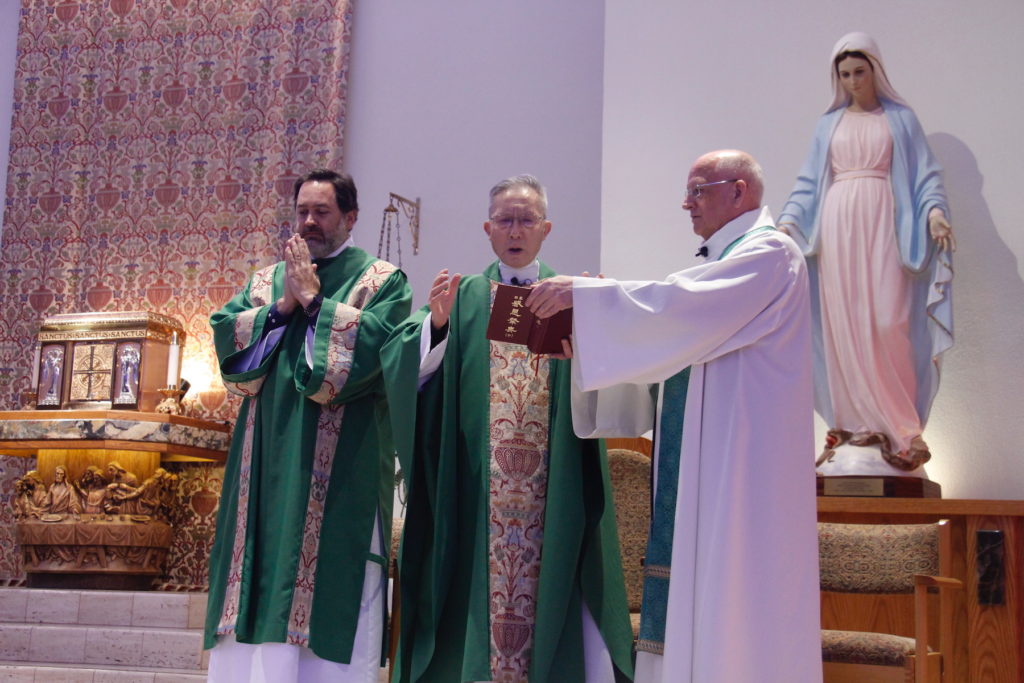
The Legion of Mary had come to China in 1948. Despite his father’s warning, “Don’t be active in the Church — the communists don’t like the Catholic Church,” Msgr. Koo joined the legion in 1950. Within six months, a newspaper headline said the Chinese Liberation Army ordered “the eradication of the reactionary group, the Legion of Mary.” Members were to report to the police station to officially resign. Msgr. Koo was leaving morning Mass that day and overheard others saying registering meant they agreed that the Legion of Mary was a reactionary group. “We can’t do that.”
“Those words changed my entire life,” Msgr. Koo emphasized. Some months later, a police officer came to his home and ordered him in for questioning. “From the beginning to the end of the questioning, I refused to say a single word,” Msgr. Koo said. He also refused a thumbprint, a decision that angered the officer and led to a night in custody. His thumb was forced on the document the next day and he was released.
“I had never felt so happy in my heart,” Msgr. Koo said. The Blessed Mother knew of his actions too. The teenager became a catechist, graduated from high school and opted for seminary over university. His mother sewed his cassocks. He likened morning time after prayer and before breakfast to a silent retreat.
Then, on Sept. 8, 1955, the Feast of the Nativity of the Blessed Virgin, “I was awakened by a noise when my door slammed open” he said, and officers appeared and ordered him and other seminarians and teachers to the classroom. He and some who were on a blacklist were arrested and pushed onto a dark truck. He maintained silence during six more interrogations and was sentenced to five years in a prison labor camp for reform.
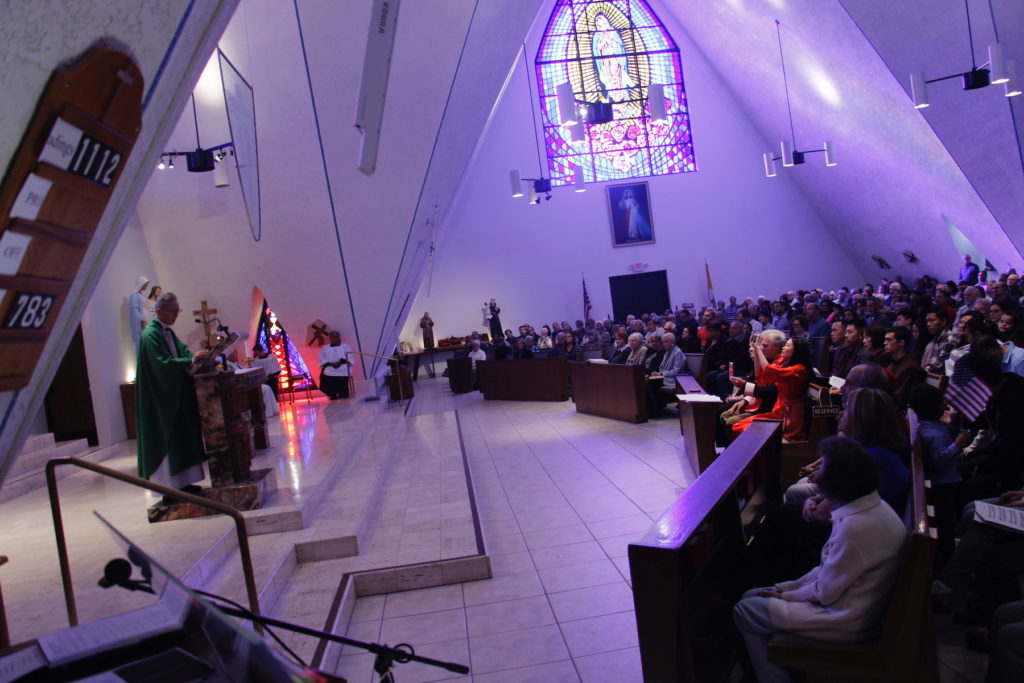
“I suffered constant physical, mental and spiritual stress for more than 20 years,” Msgr. Koo said. That five-year sentence became a 10-year sentence followed by 19 as a post-prisoner. “My life was about forced labor, brainwashing, confinement, arms cuffed behind my back, struggle and starvation. Truly, it is only with God’s mercy that I stand before you today still alive.”
He endured carrying 150 pounds worth of hot, freshly made bricks on his back during factory work and later 13-16 hours of labor pushing millstone on a penal farm on a high plateau prone to cold weather. Then there were two hours of nightly Communist political lessons. “It was only with prayer that I was able to endure the temptations I was given, which were to admit I made a mistake and denounce my faith so I could be released,” Msgr. Koo said.
He was handcuffed for a week when caught praying against a cell wall. He ate food from the ground. At another time, Msgr. Koo, then a seminarian, was accused of trying to escape and put into tiny confinement for nine days. He likened the size to a large doghouse that he climbed into and couldn’t stand. During the great famine in the 1960s, he weighed 80-some pounds for six months and could no longer walk.
Life in the U.S.
Msgr. Koo eventually got out on his own accord in 1984 and was secretly ordained by an underground bishop in 1988. Some 33 years prior, that bishop, then a priest, was arrested with Msgr. Koo and also spent many years in labor camps. A visa allowed Msgr. Koo, by then a 55-year-old, to study philosophy and theology in the U.S. He completed his studies in 1993 and began his chaplaincy in San Jose.
“I thank God for leading me through all the hardships. I believe Our Lady protected me all the way in the camp because she never forgot I was persecuted for her Son and for the Legion of Mary,” Msgr. Koo said.
Those who heard his story, some of whom had been to China and had great things to say about the country, admired the priest’s extreme suffering for the faith. They compared his story to those heard about canonized saints.
“Very few people that I know of have actually seen a person being persecuted so long and survived,” said Teresa Niu Thomas, a key contact for the Phoenix Chinese Catholic community who invited Msgr. Koo as celebrant. A Jan. 20 Catholic News Agency article reported the release of a Nigerian seminarian after only 10 days in captivity. A source told its African news partner that he was likely dumped along a highway once abductors felt he could not survive in their care. He remains in a hospital’s intensive care unit.
The Chinese liturgy and potluck that followed was a chance to gather Catholics with Chinese heritage and celebrate the Chinese New Year, which is Jan. 25. Some took advantage of the opportunity for confession in their native tongue.
Phoenix Chinese Catholic Community
Gathers for an annual Chinese Mass and potluck near New Years, retreats, an annual volunteer service and support of the diocesan Cultural Diversity Mass.CONTACT: Teresa, teresaniu224@yahoo.com
About 50 people stayed for portions of Msgr. Koo’s deeper testimony about camp and ordination.
“I feel like in heaven we’re going to meet people like this,” said Katie Kuhl, who doesn’t affiliate with a particular parish. “It’s neat how God moves and works and answers his prayers.”
Worldwide, some 260 million Christians are facing persecution, a 6 percent increase from the previous year, according to an annual Open Doors report released Jan. 15. North Korea still ranks first — for the 18th straight year — with punishments mirroring death on the spot or similar trials as Msgr. Koo.
China is not in the top 10 but moved four spots higher to No. 23 and is featured as a full-page cover photo for the report. According to Catholic News Agency, “Open Doors reports that 793 churches were attacked within the reporting period for the 2018 World Watch List, compared with 1,847 attacks reported on churches worldwide in 2019. In 2020, the number is conservatively estimated to be at least 5,576 in China alone, the report states.”



